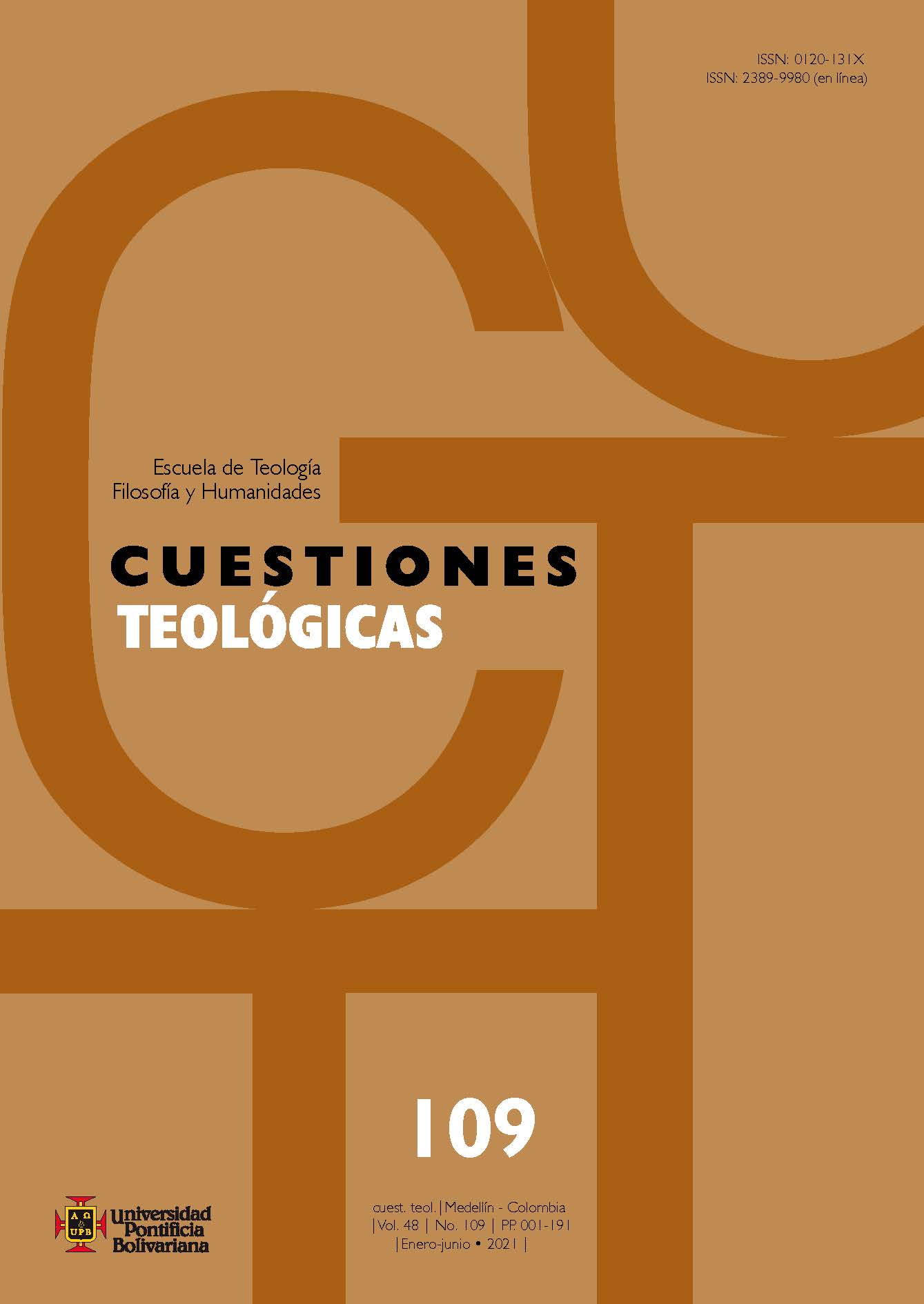An Outline for a Philosophy of Religion in Emmanuel Lévinas: The emergence of hermeneutics
Main Article Content
Abstract
The article introduces an outline for a philosophy of religion in the work of Emmanuel Lévinas. Thus, it throws light on an issue of interpretation in which, on the one hand, it is thought that the philosophy of Lévinas is framed in the Theological Turn in French Phenomenology and, on the other, the philosopher himself denies any theological approach. At the same time, it acknowledges the considerations of Levinas regarding God, the Holy Scriptures, and Sacredness, without framing his work in any form of philosophy of religion, of which he never wrote. Though there is some research in the philosophy of religion of Levinas, the value of such an approach, as a response to those who rush at affirming a Theological Turn within Levinasian philosophy, has not been yet considered. Bearing this in mind, the article focuses on the work Écrit et sacré (1989), which is his only work that might be labeled as “philosophy of religion”. Precisely, because just one work is not enough reason to characterize the entire thought of Levinas, only an outline is proposed in this article, thus preserving his undertaking, but allowing to address a work that has been usually dismissed. Therefore, the article shows that it might be more appropriate to speak of a Hermeneutic Turn than of a Theological Turn. First, it introduces a general view of the philosophy of religion to consider the possible points of contact with the philosophy of Lévinas. Second, it considers the idea of anomalies. Finally, it considers original elements of Écrit et sacré that might make possible to outline a philosophy of religion connected to a Hermeneutic Turn. It also shows that due to his familiarity with the Scriptures, Lévinas argues for a human being who is capable of them and who is open to them.
References
Calin, R. y Sebbah, F.-D. (2002). La vocabulaire de Levinas. París: Ellipses.
Chardel, P.-A. (2002). Du primat du visage aux richesses inattendues de l’écriture: remarques sur l’herméneutiques d’Emmanuel Levinas. Revue philosophique de Louvain, 100(1-2), 186-211.
Fabre, P. (2005). Bibliographie d’Emmanuel Levinas, 1929-2005. Jerusalén: Institut d’Études Lévinassiennes.
Greisch, J. (2002). Le buisson ardent et les lumières de la raison: l’invention de la philosophie de la religión (Vol I). París: Les éditions du Cerf.
Greisch, J. (2004). Le buisson ardent et les lumières de la raison: l’invention de la philosophie de la religión (Vol IV). París: Les éditions du Cerf.
Grondin, J. (2003). Le tournant herméneutique de la phénoménologie. París: Presses universitaires de France.
Janicaud, D. (1992). Le Tournant théologique de la phénoménologie française. París: Éditions de l’Éclat.
Kosky, J. (2001). Lévinas and the philosophy of religion. Bloomington: Indiana University Press.
Lévinas, E. (1961). Totalité et infini: essai sur l’extériorité. La Haya: Martinus Nijhoff.
Lévinas, E. (1974). Autrement qu’être ou au-delà de l’essence. La Haya: Martinus Nijhoff.
Lévinas, E. (1977). Du Sacré au Saint. París: Éditions du Minuit.
Lévinas, E. (1981). Amour et révélation. En P. Huot-Pleuroux, La charité aujourd’hui (pp. 133-148). París: S.O.S.
Lévinas, E. (1982). L’Au-delà du verset. París: Minuit.
Lévinas, E. (1989). Écrit et sacré. En J.-L. Vieillard-Baron y F. Kaplan (Eds.), Introduction à la philosophie de la religion (pp. 353-362). París: Les editions du Cerf.
Lévinas, E. (1991). Entre nous: essais sur le penser-à-l’autre. París: Grasset et Fasquelle.
Lévinas, E. (1994a). Les Imprévus de l’histoire. París: Fata Morgana.
Lévinas, E. (1994b). L’intrigue de l’infini. París: Flammarion.
Lévinas, E. (1996a). Nouvelles lectures talmudiques. París: Les Éditions de Minuit.
Lévinas, E. (1996b). Transcendance et intelligibilité. París: Labor et Fides.
Lévinas, E. (1998a). De Dieu qui vient à l’idée. París: Vrin.
Lévinas, E. (1998b). Éthique comme philosophie première. París: Rivages Poche.
Lévinas, E. (2004). De l’existence à l’existant. París: Vrin.
Lévinas, E. (2005). Quatre lectures talmudiques. París: Les Éditions de Minuit.
Lévinas, E. (2006). Difficile liberté: essais sur le judaïsme. París: Albin Michel.
Mao, X. (2019). Religion’s ambivalent relation with violence: From scott appleby to Emmanuel Levinas. Religions, 10(11), 632. https://doi.org/10.3390/rel10110632
Meslin, M. (1988). L’expérience humaine du divin: fondements d’une anthropologie religieuse. París: Les éditions du Cerf.
Minister, S. y Murtha, J. (2010). Levinas and the philosophy of religion. Philosophy Compass, 5(11), 1023-1033. https://doi.org/10.1111/j.1747-9991.2010.00342.x
Petitdemange, G. (2008). Lévinas, la réserve de la lettre. En M. Abensour y A. Kupiec (Ed.), Emmanuel Levinas: la question du livre (pp. 137-151). Normandía: IMEC.
Reed, R. C. (2019). Spiritual trial in Kierkegaard: Religious anxiety and Levinas’s other. International Journal of Philosophy and Theology, 80(4-5), 495-509. https://doi.org/10.1080/21692327.2019.1677172
Rolland, J. (2000). Parcours de l’autrement. París: Presses universitaires de France.
Schaeffler, R. (2003). Filosofía de la religión. Salamanca: Sígueme.
Sebbah, F.-D. y Salanskis, J.-M. (2008). Usages contemporains de la phénoménologie. París: Sens y Tonka.
Vieillard-Baron, J.-L. (1989). Les conditions de possibilité d’une philosophie de la religion. En J.-L. Vieillard-Baron y F. Kaplan (Eds.), Introduction à la philosophie de la religion (pp. 9-10). París: Les éditions du Cerf.
Welten, R. (2020). In the beginning was the violence: Emmanuel Levinas on religion and violence. Continental Philosophy Review, 53, 355-370. https://doi.org/10.1007/s11007-020-09491-z






